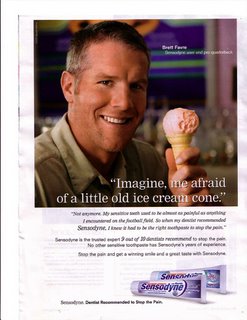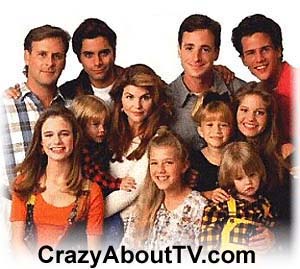 In 2003, I was involved in a book project called "Kill Your Idols" edited by Chicago Sun-Times rock critic Jim DeRogatis. The idea was to assemble a bunch of hip, young music writers and have them rip a classic rock album to shreads. With an idea like that, you are bound to sell millions of books, right?
In 2003, I was involved in a book project called "Kill Your Idols" edited by Chicago Sun-Times rock critic Jim DeRogatis. The idea was to assemble a bunch of hip, young music writers and have them rip a classic rock album to shreads. With an idea like that, you are bound to sell millions of books, right?
The album I picked was "Automatic for the People" by R.E.M., a band so inextricably linked to my teenage years that I find them virtually impossible to stomach now. Imagine paging through a photo album filled with every pimply, bracefaced, and mulleted picture ever taken of yourself and you get an idea of how I feel whenever "Shiny Happy People" comes on the radio.
Anyway, my essay ended up being dropped from the book at the last minute due to space constraints. (Part of me suspects this is the publishing equivilant of "I just want to be friends," but maybe not.) It has stayed in my computer, unread, ever since.
Reading it now, I'm pretty ho-hum on the whole thing. There are some good bits, but otherwise the usual things I hate about my old writing (using too many words, too many "hey man!" asides, etc.) pop up frequently. But I did work long and hard on this thing, and it would be nice if somebody read it.
WARNING: This is pretty long, about 3,000 words or so. I'm violating a core blog rule with this kind of sprawling post, but rules were made to be broken. (Cue "Bad to the Bone" music.) I'll understand if this is too long to read, though.
If R.E.M. releases an album to an indifferent public, does that music really exist? Or does it dissipate into the heavens and float outside gravity's pull? Maybe 400 billion years from now aliens will discover the stray notes and use them to trace the history of man on a planet once called Earth. Or maybe the CD gets marked down and tossed in the cutout bin. Who knows?
More important, who cares?Like most rock fans, I haven't cared about R.E.M. for a while now. It used to be big deal for me to admit that my favorite band didn't do anything for me anymore. But now, I don't give it a second thought. When Reveal came out a couple of years back (is that what it's called, Reveal? I think that's it), I made a conscious decision not to buy it. It was the first time I did that with an R.E.M. record. I felt the guilt any fan feels when they turn their back on something they once loved. But guilt was the only thing left motivating my R.E.M. fandom. And guilt without good reason is nothing but self-delusion disguised as nostalgia (at least in the rock sense). Once it was found out I never looked back. I heard R.E.M. still is touring and making albums. Good for them. Hey, so is Kansas. Heck, maybe they'll share a double bill at the county fair. If tickets are cheap, we can check them out! Just as long as they play the hits, like that one about Leonard Bernstein with the really long title!
R.E.M's best days, it seems, have drifted away like dust in the wind. And yet, in the tradition of deluded rock stars everywhere, they continue. Diehards faithfully argue that they still have something to say, but those of us who live in reality know R.E.M. has a pulse because they either (a) won't acknowledge that they suck or (b) don't know that they suck, which, of course, is worse and probably the truer theory. You get the feeling the band missed a perfect out when drummer Bill Berry decided keeping his brain intact was more important that the occasional Rolling Stone cover and quit. The rest of R.E.M. could have called it a day and started systematically selling their songs to corporate advertisers, satisfied in the knowledge that they helped define rock 'n' roll for a generation of college students. But for some reason, Michael Stipe and the other two guys decided to stick together and release exceedingly underwhelming records into the next century. (Actually, I can think of 80 million reasons why R.E.M. didn't break up, but that's between them and owners of Warner Bros. stock.) Berry had a nice fantasy once upon a time (before he became a farmer) about R.E.M. playing a massive concert on Dec. 31, 1999 and calling it quits afterward. Such a scenario would have fit with the impeccable sense of timing the band had during the first 10 years of their career, and might have helped cinch legendary status a la the Beatles playing their last gig on the rooftop of Apple Records surrounded by cops.
But by not breaking up, Stipe and the other two guys have saddled their band with the incredible shrinking legacy (which comes with the incredible shrinking audience with the incredible shrinking attention span for anything recorded post-1992.) With each passing year, R.E.M.'s piece of rock history real estate grows smaller. Sure, they are guaranteed first ballot Rock 'n' Roll Hall of Fame inductees. But does anyone really put them up there with the greats? Do they have a single song that ranks among rock's most essential? When you're drunk at your favorite bar at 2 a.m. (the optimum time for the best rock 'n' roll), is this the band you punch up on the jukebox? Are they even on there? Do I hear crickets?
Where did things go wrong for R.E.M.? There was a time when you couldn't throw a rock magazine without hitting a story genuflecting at their incredibly monumental brilliance. They were the avatars of the underground, the most respected band in America. They were cool. Now that Fred Durst and Kid Rock have made the world safe again for uber-masculine, sexist jackasses, a band of flaming liberals who write songs about the ozone layer is as quaint as "Unskinny Bop" was after Nirvana got played on MTV. Which is another way of saying that R.E.M. ain't so cool no more. The only people who like R.E.M. now are those wretched Gen-Xers who came of age from 1984 to 1994. And they cling to R.E.M. like the baby boomers who pay 150 bucks to see The Eagles or Billy Joel. They play "real" music, man. With guitars and poetic lyrics, not any of that rap crap. That was when all things virtuous and true mattered, kids.
So again, where did things go wrong? Most R.E.M.ologists go back to the band’s disastrous 1994-95 period, when they released the grunge-inspired Monster and launched an ill-fated concert tour, their first in six years. Monster marked the first time in the band’s 14-year career where they were following instead of leading. Nirvana laid down the gauntlet, and R.E.M. was strong-armed into playing hard rock to keep pace. Unfortunately, they got a wicked side ache in the process. Not even the most passionate R.E.M. fan would argue that these guys are gut-level rockers, and re-writing “Smells Like Teen Spirit” clearly was not their forte. The sessions reportedly were marred by in-fighting, and for the first time, fans had reason to think their golden boys really didn’t like each other after all. Being in the same band for a decade and a half can do that to you, as can failing to come up with anything better than “Bang and Blame” and “The King of Comedy.” (Peter Buck insisting on playing tremolo guitar on every track must have been frustrating, too, especially since he couldn‘t put the damn mandolin down on the previous two records.) Of course, Monster was hailed by the rock press at the time (though not in retrospect) and the accompanying tour was positioned as a coronation for one of the biggest bands in the world. The gods choose not to cooperate on that one, however. Bill Berry was almost killed by an aneurysm right in the middle of a show in Switzerland. Stipe and bassist Mike Mills also had health problems during the tour. Artistically, the shows were dull and predictable, with Stipe prancing around doing his sub-Bono “irony” routine while the rest of the band was shaky at best, disinterested at worst. (Maybe they were praying that the Lord Almighty wouldn’t rain toads on their multi-million dollar field trip.) By tour’s end R.E.M., for all intents and purposes, was finished. Monster drained them musically and the tour sucked them dry physically and emotionally. Recognizing this, their record company awarded them a new $80 million contract, one dollar for every grain of dirt tossed on their grave.
Warner Bros. has played a “Weekend at Bernie’s” with R.E.M. ever since, and Stipe and the other two guys have been all too willing to fling their lifeless limbs on meaningless albums nobody wants to buy. But Monster was really a symptom of a deeper rot, not the cause of it. When the obit for R.E.M. finally is written, I think the beginning of the end will be traced back to Monster’s predecessor, Automatic for the People, the album that defines the limits of what they are capable of. Coming from most people, that would be a compliment. Automatic for the People is considered R.E.M.'s masterpiece, second to none (except for maybe Murmur) in their vaunted catalog. It is their career-definer and re-inventor. "This is the members of R.E.M. delving deeper than ever; grown sadder and wiser, the Athens subversives reveal a darker vision that shimmers with new, complex beauty," Rolling Stone raved in a rare, non-Mick Jagger five-star review. Adds The Trouser Press: “Whatever R.E.M. once was no longer counts in the new math being reckoned in this eloquent chamber.” And The All Music Guide calls it "the most rewarding record in their oeuvre." (Only bands like R.E.M. have "oeuvres." No matter how many albums they release, Def Leppard will never have an oeuvre, no matter how much Pyromania rules.)
The problem here is that these people wrote nice things about Automatic for the People and then stored it away for 10 years. Before I dug it out recently, I also remembered it being a lot better than the creaky, stiff and unexciting album it really is. Seriously, the first NINE songs are filler (so much for masterpiece) and the other three are pleasant folk ballads wrecked by Stipe's flat-as-a-freakin'-pancake voice and bad high school poetry. Even "Nightswimming," which has an undeniably lovely if repetitive melody, is mucked up by a series of howlers straight from Mikey's 10th grade creative writing journal: "September's coming soon/I'm pining for the moon/And what if there were two/Side by side in orbit/Around the fairest sun?" Ugh! Where's John Belushi when you need him to smash up this kind of twee prattle? (Plus, I really hate how Stipe sings, "Nightswimming de-sa-erves a quiet a night." Can't explain it, just hate it.) But that's nothing compared to the album's biggest embarrassment, "Everybody Hurts," which is "Shiny Happy People" without Prozac, only dumber. After years of beating around the bush, Stipe finally came out loud and clear with a message: Suicide is bad, so, like, don't do it people. Kind of makes you wish he would have kept the marbles in his mouth, but oh well. Put that over creamy instrumentation that sounds lifted from a 10,000 Maniacs outtake and you have the makings of some mighty fine treacle. When Whitney Houston decides to cover "Everybody Hurts" (as it is her destiny to do), she will have the biggest single of her career. I
t's funny how things come full circle. When I bought Automatic for the People the week it came out in 1992, I didn't like it. I thought then, as I do now, that most of the songs were unmemorable and over-orchestrated. "Drive" and "Monty Got a Raw Deal" had decent guitar licks, but little else. "The Sidewinder Sleeps Tonight" bugged the shit out of me. "Man on the Moon" probably was the best R.E.M. song of the 1990s, but the petulant anti-Republican rant "Ignoreland" was one of the worst. "Star Me Kitten" and "New Orleans Instrumental No. 1" were rehearsal tape rejects the engineer forgot to erase. The rest got skipped over. ("Sweetness Follows?" Nope, don't remember it.)
This initial reaction, frankly, really scared me. Not liking R.E.M. in 1992 meant you had bad taste, and I desperately wanted to have good taste. By age 14, I already was a student of rock journalism, and like a lot of people, I read about R.E.M. before I heard them. Those mostly worshipful stories provided a context that made the music seem more important than it might otherwise seem. If I didn't like Automatic for the People, that just meant I wasn't equipped to appreciate it. Like Trout Mask Replica and Jack Keroauc, it was something I had to train myself to love.
If Automatic for the People represents the pinnacle of R.E.M.'s critical and commercial popularity (it does), and they were never more free to make the album they wanted to make in the fashion they wanted to make it (they weren't), it's no wonder the band's legacy has taken a nosedive. Bands are defined by their masterpieces. Pink Floyd is a solid classic rock group, but people wouldn't be poring over their records like the Dead Sea Scrolls if Dark Side of the Moon hadn't roped them in. The Clash would have just been a noteworthy Sex Pistols rip-off if they hadn't released London Calling. OK Computer made The Bends seem more visionary than it sounded initially (though that doesn't translate to Radiohead's debut, Pablo Honey.) Good albums are validated by great albums in an artist's discography because they provide the set up, just as an OK movie like The Usual Suspects becomes a great one because Kevin Spacey turns into Keyzer Soze at the end. For R.E.M., Automatic for the People changed how their previous music sounded, but not in a good way. Post-Automatic, R.E.M. albums suddenly became interchangeable. It is the best thing they ever did and it's not all that better than their worst record, and their worst record (I vote “Lifes Rich Pagaent“) isn't all that worse than any album they ever made. Automatic for the People is the definitive R.E.M. record, just as every R.E.M. record is the definitive R.E.M. record, just as long as you've got those good ol' borrowed sounds from the Byrds, Beach Boys, Velvets and Patti Smith and Stipe's mumbling to go on top of them.
Because that's the blueprint, folks. R.E.M. has a rep for stylistic invention, but their range always has been incredibly narrow. On the plus side, conservatism has made them consistent; there are no embarrassing trip-hop experiments, no Brazilian jazz indulgences, nothing outside the tastefully melodic, "intelligent" music dripping with integrity that everybody expects from them. But you know what? Consistency might make for a better value when you buy a record by an established artist, but in the end you’re stuck with a bunch of records you don't like listening to anymore. There's no potential for discovery with an R.E.M. album. And how can you relate to a band that never screws up? Nobody in R.E.M. ever overdosed, ever got caught with a 14-year-old girl and the Hell's Angels never killed anyone at one of their concerts. They always seemed to do everything right. Even now, while R.E.M. sells fewer records, it has been a quiet, respectable fade. Even as dinosaurs, they have grace. I guess that's commendable, but it's also pretty cowardly. R.E.M. has never risked looking foolish in public, and that's the key thing separating them from the greatest of the great rock bands. It's not that scandal and failure make an artist more interesting, just that scandal and failure usually means there's some actual life being lived, with risks and rewards and limbs that have been trespassed. It might have been easy to laugh at U2 when they crawled out of that lemon during the PopMart debacle, but at least they put their balls on the line for the sake of taking a risk. (A stupid, pointless, "Who the hell told them that would be awesome?" kind of risk, but a risk just the same.) They took a chance, and when they messed up, at least it made them seem more human.
There's nothing necessarily wrong with having a routine and sticking to it. Neil Young is at his best when he's remaking Everybody Knows This is Nowhere and After the Goldrush, his second and third albums. (If you don't believe me, try listening to Trans.) But R.E.M. have long been packaged as weirdo revolutionaries, and pumping out the same old jangle pop for two plus decades doesn't fit with that image. So writers and fans regularly have trumped up dubious "innovations" to obscure how tired R.E.M.’s formula has become. For instance, there was that business of Stipe pledging to never lip-synch in an R.E.M. video, a snore-bore non-story that nevertheless won the Bald One points for daring to be "real" in a patently false setting. (This promise ended up biting Stipe in the ass when he (gasp!) did lip-synch for a video off New Adventures in Hi-Fi that MTV played maybe three times.) Then there was "The Great Mandolin Achievement of 1991," where Peter Buck made a point of telling any interviewer within earshot that "Losing My Religion" was the only song on Top 40 radio at the time with a mandolin on it. (A mando-what? Hoo-wee, that's crazy!) When Automatic for the People was released, critics praised the band for doing a Dylan in reverse, basically toning down its sound at a time when everybody else was doing their best Black Sabbath. Like R.E.M. had a choice. That theory is true only if R.E.M. was a fire-breathing rock band before Automatic for the People, and I don't think anybody was head banging to "The One I Love."
Fact is, R.E.M. was, is and always will be wimpy. A/C masquerading as modern rock was the only response they were qualified to make to the grunge explosion. They were "alternative" for anyone who thought that Seattle stuff was too darn rowdy. The band is said to have planned for Automatic to be a loud guitar album, but any attempt to crank the amps in the wake of Nirvana would have sounded as lame as The Cranberries (who bore an obvious R.E.M. influence from the beginning.) The Monster quagmire who have been bumped up a few years, and R.E.M.'s slide into irrelevancy would have been that much quicker.
As the spiritual godfathers of odious Hootie/Matchbox "regular guy" shtick, R.E.M. are a profoundly boring band. Just forget everything you think you know about them and listen to their CDs. (Trust me, they are still there, right under your Pearl Jam and Oasis records.) The music tells the story of a band desperately trying to be "important," which was horribly important for self-important important artists in the Reagan era. I mean, R.E.M.'s fourth album was produced by the guy who did John Cougar Mellencamp's records, for Christ's sakes. And that's back when they were considered "indie." (At least Don Gehman didn't push for more songs about farms on "Lifes Rich Pageant," though Berry would have amenable, I'm sure.) Now that the '80s are over and the marketing of the time is easier to forget, "Driver 8" sure sounds a lot like "Authority Song," doesn't it?


 I don't dare count the votes yet. It's too close. If you haven't voted yet, do it!
I don't dare count the votes yet. It's too close. If you haven't voted yet, do it!







 Probably the worst thing about living in a town that gets movies weeks or even months after they have been released in major cities is you end up reading a ton about a film before actually seeing it. And this inevitably builds expecations in your mind that often aren't met.
Probably the worst thing about living in a town that gets movies weeks or even months after they have been released in major cities is you end up reading a ton about a film before actually seeing it. And this inevitably builds expecations in your mind that often aren't met.

